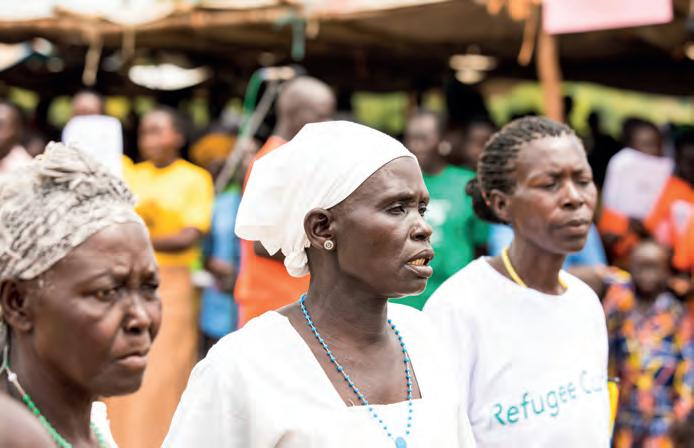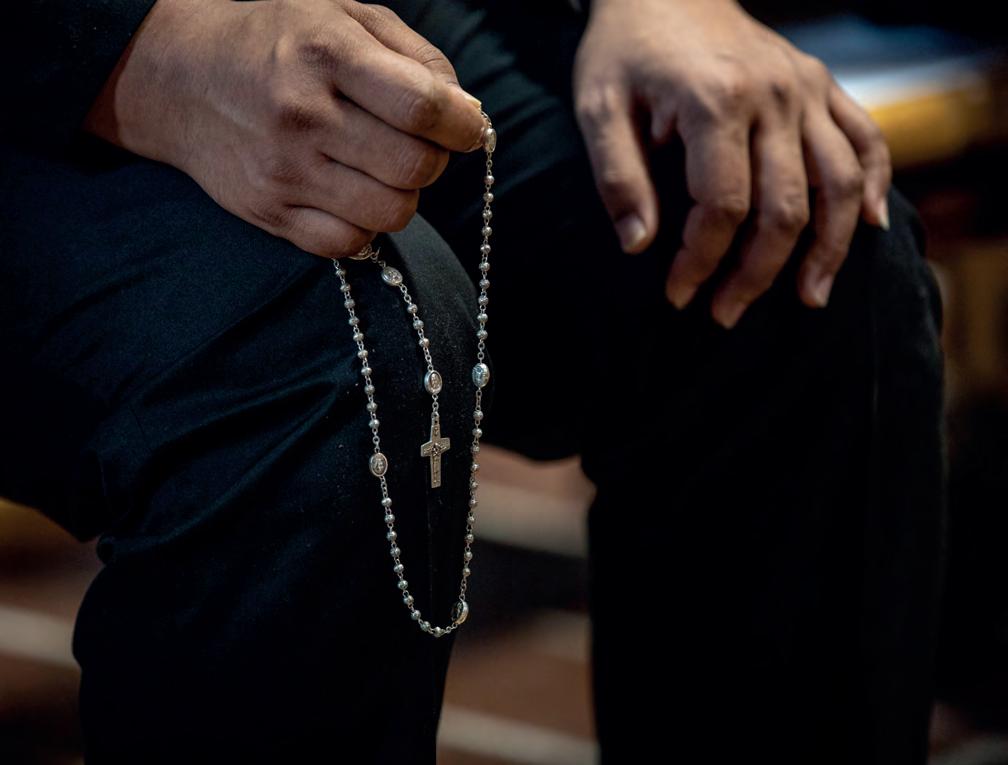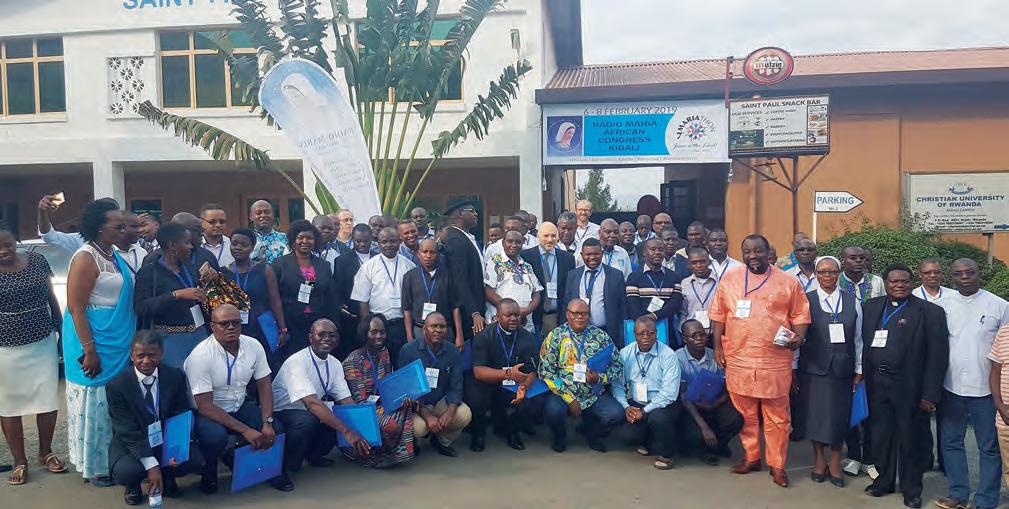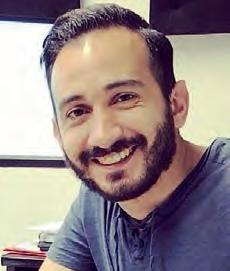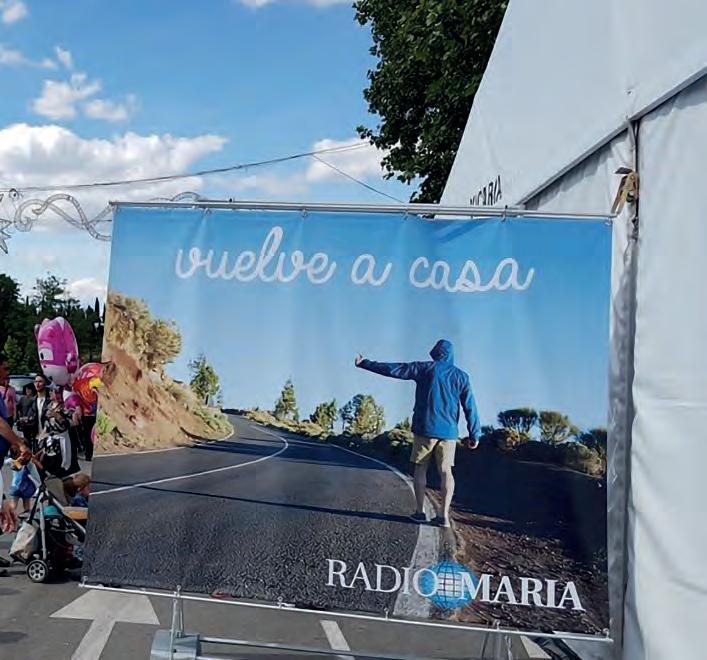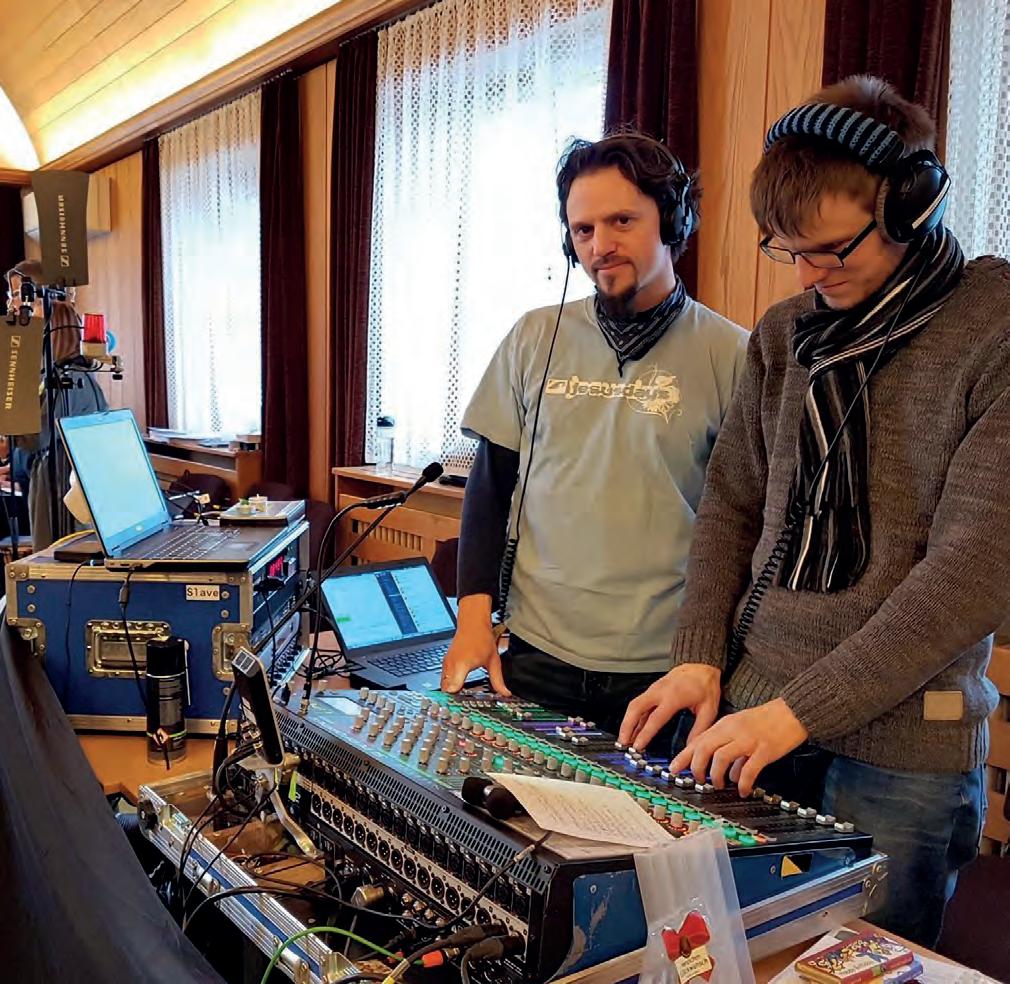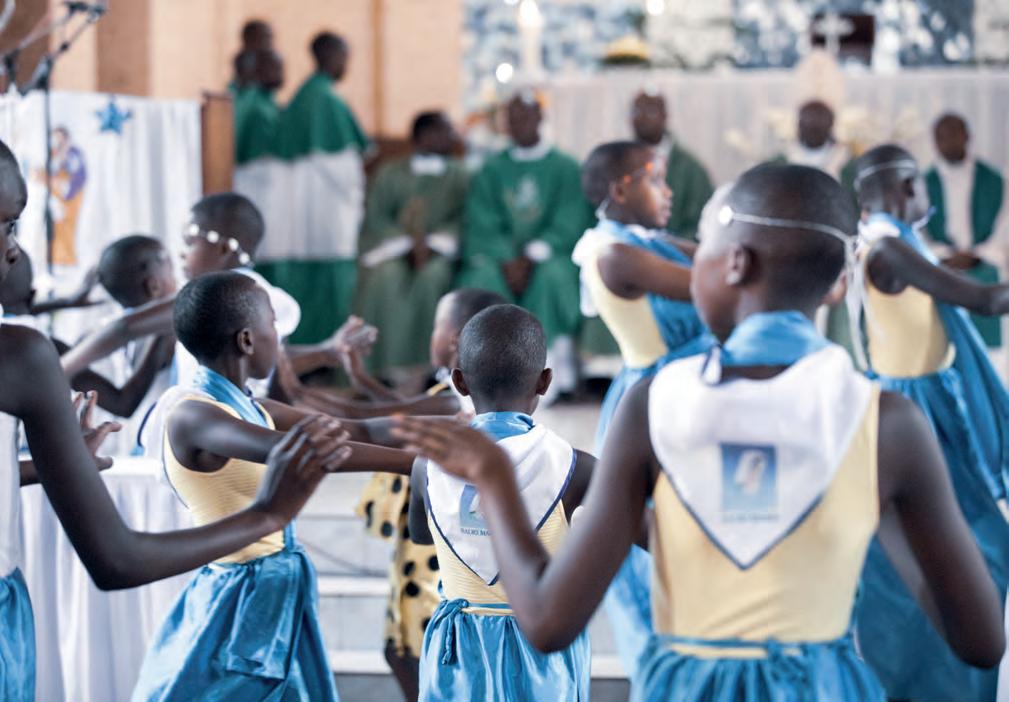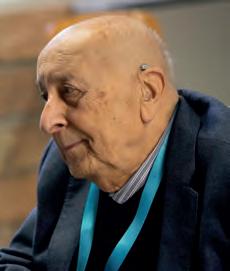
2 minute read
What is Radio Maria? (Father Livio Fanzaga
What is Radio Maria? The new challenges of the “Radio Maria Project”
Not only balance sheets in our three decades of history, but a stimulus to continue upon the path that has been taken so far.
Advertisement
Vittorio Viccardi WFRM President
After more than thirty years of operations, we are able to offer a brief assessment of Radio Maria’s mission in the world. The first phase, from the end of the 1980’s to the beginning of the 1990’s, saw Radio Maria develop in Italy, thanks also to the profound spiritual involvement of millions of Italian listeners. They are the ones who have supported the Radio’s growth, making it a wonderful national reality and then, little by little, an international one. Requests from Christians in Latin America and Europe followed, to which were added important appeals from African bishops.
The next phase was an obligatory step: establishing an international association that would gather together this spontaneous universal call of the Church in the world and organize it according to steadfastly efficient criteria, at the service of our listeners. With this determination, the simple medium of radio has proven effective throughout the world, especially in countries where freedom of thought and the media seemed not to offer any possibilities.
After the fall of the Berlin Wall then, the transition to a market economy took place, gradually preparing the way for private television and radio channels, especially in Eastern Europe. Between the end of the 90’s and the first years of the third millennium, Radio Maria thus became a precious reality for the Catholic Church’s pastoral care in the countries of the former communist bloc. Each broadcasting station has managed to integrate its programs into the great diversity of the Eastern Catholic Churches and has had constructive dialogue with the Orthodox Church.
But one of the true miracles has been Radio and more fragmented public. Surprisingly, RaMaria’s expansion in the poorest countries of dio Maria’s audience is still growing, adapting Africa and Central America. to mobile phones, social networks, and new For some years now, therefore, we have been in technologies, and even enjoying success with In the first decade of the third millennium, Ra- these media, a success that seemed undreamed dio Maria has almost always managed to be- of by most. come a national radio station in the countries This has all been possible because the message where it has arrived. Moreover, in many sub- of Christian hope is more relevant than ever Saharan African countries, it has reached the and the new instruments have given it new opmost remote villages, thus becoming an essen- portunities. People seek God everywhere, at tial instrument in the Church’s social life and every latitudes, and this reality can be seen by pastoral care. simple audience statistics, especially on the web were the data are incontestable. a new phase, at the thresh- A new phase is underway old of the second decade of for Radio Maria, therefore, the millennium. Communication is becoming richer, benefitting from new tools An instrument as simple as the radio called not only to be present in developing countries but also in those where the Chrisand new digital technologies has proven effective tian message is not yet known that offer many services, but worldwide. and where new Christian which need significant invest- communities are often marments to reach a much wider ginalized or even persecuted.


